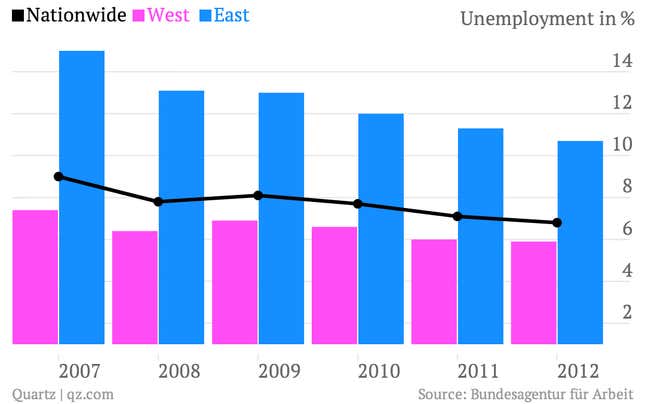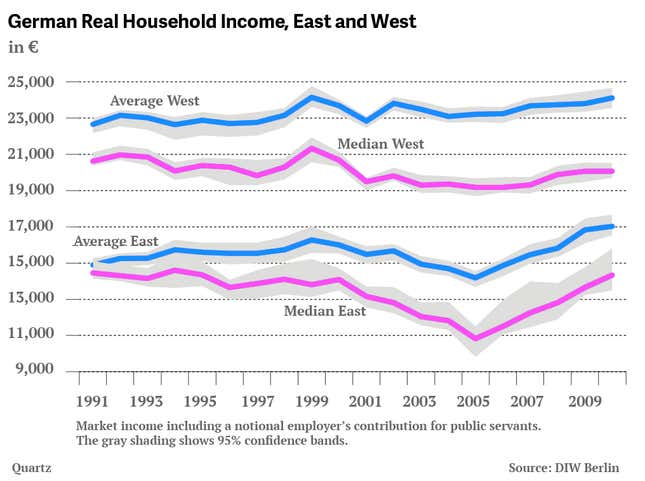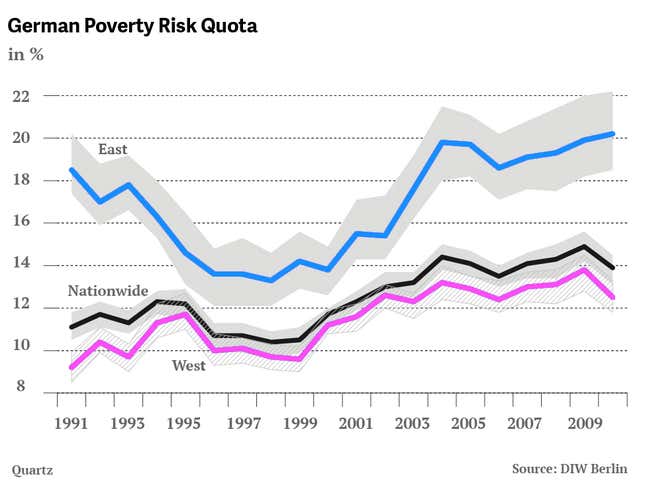When the Berlin wall fell and East Germany reuinted West Germany almost overnight in 1990, the East’s already weak economy broke down completely. Since then, efforts have been made to help the former East German states catch up with the more established states of former West Germany. However, the dynamics of this process have been shrinking over the past few years and Germans in the east seem to be stuck at a lower income level and higher unemployment rate than west Germans.

The reunification brought the institution of a fiscal transfer union system where wealthier German states would pay a tax subsidizing poorer German states, particularly those in the east (set to expire in 2019). Last year, only three paying states remained (Bavaria, Baden-Württemberg and Hesse), forking over a total of €7.9 billion ($10.2 billion) in subsides, according to Handelsblatt (German). About 40% of that money went to the state of Berlin. Bavaria and Hesse launched a constitutional challenge against the state finance adjustment subsidy, saying they no longer want to pay half of the total subsidies to the poorer states.
Sound familiar?
On an EU level, Greece has often been compared to the former East Germany before the reunification. Today, Germany’s east has many structural problems similar to those of countries like Greece and Spain, though on a much smaller scale (unemployment in Greece in 2012 was 23.8%, in Spain 24.9%).

According to an economic research report of IWH Halle (German), eastern Germany’s industrial base is weak. The region lacks export-based industrial sectors, as well as any large corporations or headquarters. And while the country as a whole is facing a demographic shift, eastern Germany’s workforce is shrinking the most since more working-age people have moved to the west.
Westerners leave behind structurally weak regions that fight with a much higher poverty risk than western regions (German), as an inequality and poverty report published Tuesday by the German government shows. The government had been criticized for adjusting a Dec. 2012 draft of the report by weakening the phrasing of statements about negative outcomes in order to “mirror Germany’s current well-being,” as German economy minister and vice chancellor Philipp Rösler argued. Critics have called for studies like this to be conducted by an independent economic institute rather than a government committee.
